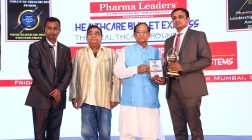GSK and the case for Indian pharma in China
It may provide India a platform to push for increased market access
For the long line of Indian pharmaceutical companies knocking on the doors of the lucrative China market, the current unraveling of the vast domestic operations of British giant GlaxoSmithKline (GSK), amid an official probe into alleged massive bribery, has laid bare the pitfalls — and potential — of doing business in China.
GSK, which has one of the most extensive operations of any foreign drug company in China, has been accused of paying bribes amounting to as much as $500 million over the past five years.
On Monday, police officials in Beijing said the company had channelled payments to doctors and hospitals to increase sales and prices of its products. Four senior Chinese GSK executives are now in detention, Gao Feng, the head of the economic crimes unit of the Ministry of Public Security, or police authority, told reporters.
He said the company had, since 2007, transferred more than 3 billion yuan ($489 million) to 700 different travel agencies and consulting companies, with the funds subsequently used to grease the wheels of China’s famously opaque pharmaceuticals industry.
“You could say the travel agencies and GSK were criminal partners,” Mr. Gao said. “Among the partners, GSK was mainly responsible. In a criminal organisation there is always a leader.”
DENIES ALLEGATIONS
A GSK spokesperson has denied the allegations, saying that internal investigations did not find any evidence of bribery. The spokesperson said the company would, however, cooperate with Chinese authorities.
One of the detained GSK executives, who headed GSK’s operations in China, was quoted as saying by the official Xinhua news agency that drugs which cost 30 yuan would be sold to patients for 300 yuan after deals struck with hospitals.
“If we want to sell a medicine in China, we should handle the procedures with the drug administration, price regulator, social security authority, local governments as well as hospitals and doctors, and all these procedures may give rise to corruption risks,” the executive reportedly said, pointing out that the companies could only make their money back by inflating prices.
For industry insiders and Indian company representatives in China, the revelations have hardly come as a surprise. The case has only made public the widely known workings of the pharma industry in China, where companies are known to curry favour with doctors to secure favourable prescriptions.
The practice has resulted in soaring medical costs for consumers, with hospitals and doctors working in tandem to keep out low-cost generics.
However, as medical costs have soared, authorities have recently moved to attempt to address the problem. But why GSK was singled out, especially when its practices have been seen by many analysts to have been the rule rather than an exception, is still unclear. That Indian companies have been largely unsuccessful in the China market, officials say, is largely the consequence of this “gamed” system where any player who brings down prices is kept out.
UNCERTAIN FUTURE
The recent move against GSK has left its future in China uncertain.
The British giant has already invested in a sprawling research facility in Shanghai, and has a substantial vaccine business. That government authorities have released detailed information surrounding the alleged crimes has suggested that regulators have already built up a strong case against the company.
While Chinese officials have promised to bring down costs in the face of rising public concerns, it still remains unlikely if Indian companies may benefit from the move.
Chinese pharmaceutical companies are fast moving up the value chain, beyond manufacturing Active Pharmaceutical Ingredients (APIs), and enjoy a network of relations with regulators and hospitals that Indian companies do not have.
The GSK case may, however, provide India with a platform to renew its push for regulators to increase market access, particularly considering the success that Indian products have enjoyed in other emerging markets such as Russia. Pharmaceuticals and information technology are the two sectors India has highlighted in its push for greater market access in China.
In recent talks with the Chinese, India has made the point that generic product approval timelines in China — approvals often take more than five years — are much longer than in any other country. The tedious approvals process means Indian companies are often excluded from the bidding that decides hospital listings, where only one generic version is permitted for each drug.
India has asked China to consider introducing a quota allocation for affordable drugs from India, pointing out that doing so will ultimately benefit Chinese consumers who are now being forced to pay higher prices.
But as China moves to develop its own domestic industry, it remains unclear if it will listen, even as the trade imbalance with India continues to widen and increasingly strain a once booming trade relationship.










